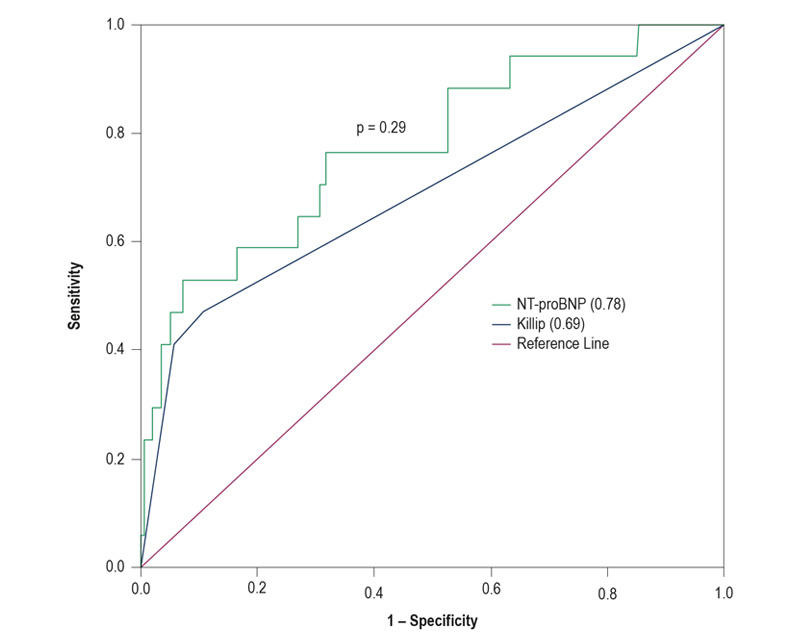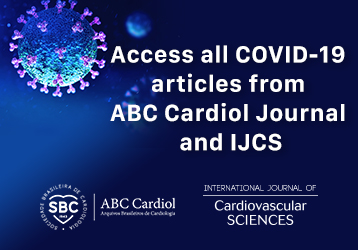Volume 114, Nº 4, April 2020
DOI: https://doi.org/10.36660/abc.20180345
ORIGINAL ARTICLE
Prognostic Value of NT-proBNP versus Killip Classification in Patients with Acute Coronary Syndromes
Thiago M. B. Souza
Antônio Maurício S. Cerqueira Jr.
Jessica G. Suerdieck
Nicole C. de Sá
Gabriella S. Sodré
Vitor C. A. Correia
Yasmin F. Lacerda
Leticia L. Fonseca
Marcia M. Noya-Rabelo
Luis C. L. Correia

Figure 1 – The accuracy of NT-pro-BNP in the prediction of death has a value of 0.78 (95% CI 0.65 – 0.9) in the C statistic and in the Killip classification 0.69 (95% CI 0.54 – 0.84).
Abstract
Background: Plasma levels of brain natriuretic peptides have better diagnostic accuracy compared to clinical-radiologic judgment for acute heart failure. In acute coronary syndromes (ACS), the prognostic value of acute heart failure is incorporated into predictive models through Killip classification. It is not established whether NT-proBNP could increment prognostic prediction.
Objective: To evaluate whether NT-proBNP, as a measure of left ventricular dysfunction, improves the in-hospital prognostic value of the GRACE score in ACS.
Methods: Patients admitted due to acute chest pain, with electrocardiogram and/or troponin criteria for ACS were included in the study. The plasma level of NT-proBNP was measured at hospital admission and the primary endpoint was defined as cardiovascular death during hospitalization. P-value < 0.05 was considered as significant.
Results: Among 352 patients studied, cardiovascular mortality was 4.8%. The predictive value of NT-proBNP for cardiovascular death was shown by a C-statistic of 0.78 (95% CI = 0.65–0.90). After adjustment for the GRACE model subtracted by Killip variable, NT-proBNP remained independently associated with cardiovascular death (p = 0.015). However, discrimination by the GRACE-BNP logistic model (C-statistics = 0.83; 95%CI = 0.69–0.97) was not superior to the traditional GRACE Score with Killip (C-statistic = 0.82; 95%CI = 0.68–0.97). The GRACE-BNP model did not provide improvement in the classification of patients to high risk by the GRACE Score (net reclassification index = – 0.15; p = 0.14).
Conclusion: Despite the statistical association with cardiovascular death, there was no evidence that NT-proBNP increments the prognostic value of GRACE score in ACS. (Arq Bras Cardiol. 2020; 114(4):666-672)
Keywords: Acute Coronary Syndrome; Heart Failure; Natriuretic Peptide, Brain; Mortality; Ventricular Dysfunction, Left; Biomarkers.















